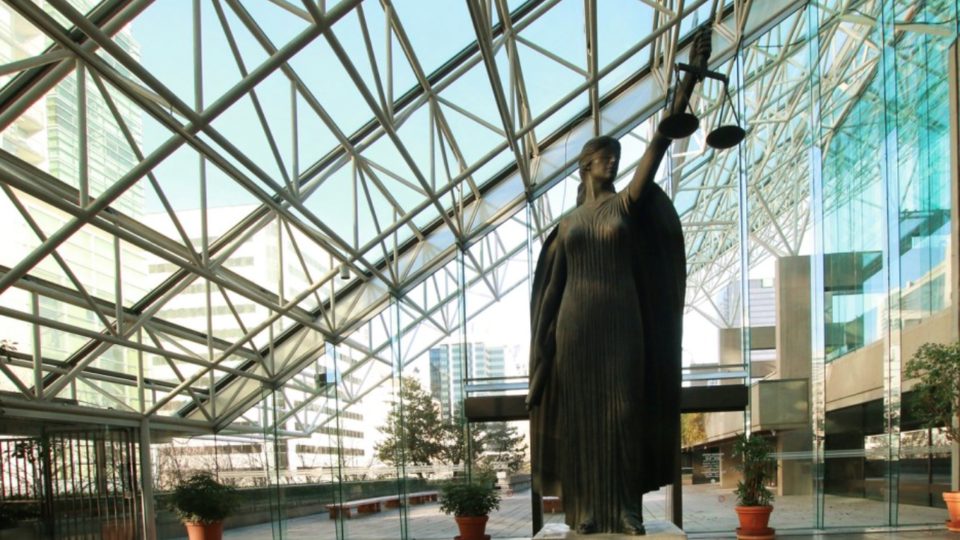B.C.’s new Legal Profession Act received royal assent and became law last month despite strong opposition from the province’s law society and bar association.
The legislation establishes a single regulatory body for lawyers, paralegals and notaries, and a new category of regulated paralegals who can handle certain legal cases on their own. The scope of notaries public will also be broadened to include more day-to-day legal matters.
However, soon after the bill was passed, the Law Society of British Columbia and Trial Lawyers Association of B.C. filed lawsuits to challenge the constitutionality of the bill. The Canadian Bar Association, BC Branch (CBABC) also voiced opposition to the act.
Many B.C. lawyers are concerned that the act will undermine the independence of the legal professions and their regulator. However, others say the “long-awaited” act creates a more modern governance structure for the legal profession and will help bridge the legal services affordability gap that exists in the province.
Concerns over lawyer independence under act
“Overall, we’re deeply disappointed that the act passed,” said Scott Morishita, president of the CBABC.
“One of the main concerns we have is that it does not adequately protect the independence of lawyers from government. It’s really important and critical for a democratic society that lawyers be independent from anyone and can act in the full and best interest of their clients.”
He said lawyers need to be independent from government because they are often acting for clients that are fighting the government. And the makeup of the new regulator, which will not have a majority of elected lawyers on the board, is “very concerning” to lawyers in the province, Morishita said.

There are currently 25 elected lawyers on the Law Society of British Columbia’s board and six benchers who are not lawyers and are appointed by the government.
The new regulator will have 17 board directors, including five elected by lawyers, two elected by notaries public, two paralegals, three members of the public appointed by the B.C. government—including at least one from a First Nation—and five directors appointed by a majority of other directors, including four lawyers and a notary public, one of whom must be an Indigenous person.
“We think it’s important that the professionals that have the full scope of practice, the fullest big picture are the ones that should have the majority on the board,” said Morishita.
Jeevyn Dhaliwal, president of the Law Society of British Columbia, said the makeup of a board with only five representatives elected by lawyers will take away the geographic and professional diversity that exists under the current system.
“Currently, [our] elected lawyers come from regions around the province.… There are different ways to practice law and different access issues throughout the province, and given the new legislation and the parameters of the board, that diversity is likely to be lost.”
Many lawyers are also concerned about the “significant amount of prescriptive sections” within the legislation that tells the board what to do, according to Dhaliwal.
“[People] need to have an independent lawyer who would represent them and not be fearful of what their regulator might do to them if they are off side of this new legislation. And there should never be a case where a lawyer is fearful of their own licensing,” she said.
A ‘long-awaited’ change for B.C.’s legal profession
However, some B.C. lawyers have applauded the act and said it is a significant step forward towards the modern governance of the legal profession in the province.
“What the act does is it opens up the provision of legal services in B.C. to paralegals and notaries and potentially other kinds of legal service providers, and that should generally be a good thing,” said Robert Lapper, a public law lawyer and Lam chairman in law and public policy at the University of Victoria.
He said 75 to 80 per cent of people who have legal problems can’t afford legal services in B.C., and the new governance structure will open up the possibility of appropriately trained professionals providing certain legal services—hopefully at a more affordable price.
“It won’t cure by any stretch the access-to-justice problem that we have. In fact, we have it in most western democracies, but it starts the conversation about that,” said Lapper.
Lapper said he doesn’t see that the governance structure under the Legal Profession Act necessarily compromises the independence of legal professionals. Rather, he said it ensures that the public interest is also taken into account.
“What often happens is that those lawyers [elected to be board members] pay more attention to their members than to the public interest because they have to be elected by their members,” he said.
“There are similar models in Great Britain and Australia. Nobody is suggesting that their lawyers there aren’t independent.”

Jamie Maclaren, executive director of Access Pro Bono Society of BC, said the passage of the bill is a “long-awaited effort” to help bridge the affordability gap in legal services in B.C.
“The [current] challenge is the demand for free legal services is much higher than the supply of volunteer lawyers.… Unfortunately, we have to turn away a great number of people who need legal help and focus our services on the most critical legal needs,” he said.
“This new legislation should introduce a wider variety of legal professionals who are willing to engage in pro bono service and serve unmet legal needs, partly because their licenses to practice will be more suited or more focused on the everyday legal needs of British Columbians.”
The Indigenous Bar Association applauded the act in an April 25 statement, especially for its establishment of an Indigenous Advisory Council, which the association said will advance Indigenous representation and dismantle systemic discrimination.
Legal actions to stop new act
Dhaliwal said the Law Society is litigating the matter because it believes it’s in the public interest, and it hopes that, by taking legal action, it will stop the implementation of the act.
She added that the B.C. government passed the legislation “without significant consultation” with lawyers and has failed to fund the legal aid services the NDP government promised in 1992 when enacting a seven-per-cent provincial sales tax on the provision of legal services.
“If we talk about access to legal services and access to justice, then I would suggest that a place to start would have been to put that $6 billion toward the robust legal aid system that was promised, instead of doing a wholesale review of the Law Society and the Legal Profession Act,” said Dhaliwal, in reference to the tax money collected by government.
B.C. Attorney General Niki Sharma said in a statement to BIV that the new act aims to provide people in B.C. with more affordable choices and increased access to support to help them solve their legal problems. The independence of lawyers in the service of their clients is fully supported by government, she said.
“Lawyers will continue to be self-regulating under the act,” read the statement.
“Our desire is work with the Law Society to ensure a smooth and effective transition. We are reviewing their claim and will respond accordingly.”
Updated June 17, 2024, to clarify Robert Lapper's position at the University of Victoria.



